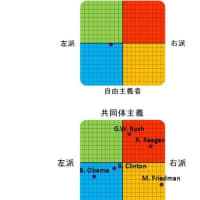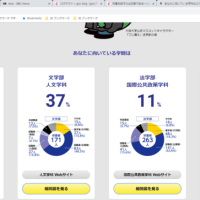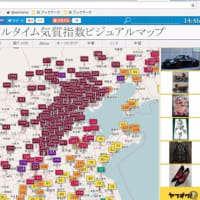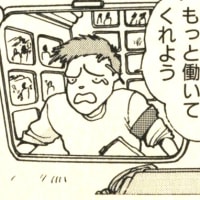BBC Why Chinese farmers have crossed border into Russia's Far East 1 Nov 2019 By Andrei Zakharov & Anastasia Napalkova
ロシア辺境地帯の旧共同農場には、いまや中国人労働者が―という、それなりによく知られた話のBBC記事。
「The farm in Maksimovka is surrounded by high metal fences. The Chinese migrants who work there only leave the site to go shopping. At the centre of this village in Russia's Far East sits an old abandoned building - there is no lock on the door and inside, the floor is littered with papers dating back to the 1980s and 90s.
Here lie clues to why a farm that once provided work to some 400 Russians was unable to survive.
Like many of the collective farms in rural Russia, the Mayak farm collapsed with the old Soviet Union.
That is when the Chinese workers arrived, in five border regions, and Russians have not always been happy to welcome their new neighbours.」
1990年代から進出していったものだが、会社組織は2000年代に、そして2008年の経済危機をきっかけにさらにさらに…ということのよう。
「Chinese companies first appeared in Russia's Far East in the early 2000s, but Beijing's interest in the region increased after the global financial crisis of 2008.
"There was panic, [the Chinese] were looking at where to invest," the head of a Chinese-owned farm told BBC Russian, preferring not to give his name.」
素人・一般人には理解不可能なほどに膨大な農地を耕作している:
「Based on data released by the state land register, BBC Russian calculated that Chinese citizens either owned or leased at least 350,000 hectares (3,500 sq km) of Far Eastern land in Russia. In 2018, around 2.2 million hectares of Russian land in the region was used for agricultural purposes.
The actual proportion could be higher, the BBC has learned.」
視覚的にわかりやすくしてもらったほうがいいな(元記事に図示されている)。ユダヤ人自治区では全農地163.2のうち、89.9までが中国人耕作地だと。つまり半分ちょっと。ああそりゃあ、侵略的、と思われるだろうな。
「Chinese farmers are, according to BBC research, represented in 40% of the Far East, most significantly in the Jewish autonomous region of Birobidzhan.」
リースされた土地を要塞のごとく固める例もある。ロシア人名義でリースされても実際は中国人経営ということもある。なるほど、まあ、いろいろキッツイ。
「Regional governor Alexander Levintal said that in many cases land officially leased by Russians was in reality managed by Chinese nationals.」
「Most of the farms run by Chinese migrants resemble fortresses. At Babstovo, a half-hour drive from the Chinese border, lies Friendship farm, which is surrounded by a high fence and a red flag.」
「Chinese Dima moved to Russia in the 1990s and leased more than 2,500 hectares of land to develop a soya plantation. He is actively involved in the community, buying presents for nursery school children and sending his tractor to help clear the snow in remote villages in the winter.」
しかしこのように、雪掃き用のトラクターを地域に寄付したり、溶け込む努力に怠りない人たちもいるようで。
「Almost half said that China threatened Russia's territorial integrity, while a third believed that it endangered their country's economic development.」
とまあ、全般的には摩擦軋轢のほうが大きいかなあ。
「Mr Larik, of the peasant association in the Jewish autonomous region, said Chinese farm owners generally preferred hiring Chinese migrants and gave Russian nationals low-skilled jobs.
A Chinese farmer who asked to stay anonymous complained about the drinking habits of Russian employees.
"All Russians drink. Today you pay them, tomorrow they do not show up. There are problems with discipline," he said.」
お互い、不満と不信がつもりあがっているなあ、と。
「あいつらは同胞だけ割りのいい職につけたがっている」
「あいつらは酒飲みでダメだ。給料貰ったら呑んでしまって、翌日は仕事に来ない(そんなやつらに大事な仕事をまかせられるもんか!)」
…まあ、その、双方尤もではあって、困りましたよね。
ロシア辺境地帯の旧共同農場には、いまや中国人労働者が―という、それなりによく知られた話のBBC記事。
「The farm in Maksimovka is surrounded by high metal fences. The Chinese migrants who work there only leave the site to go shopping. At the centre of this village in Russia's Far East sits an old abandoned building - there is no lock on the door and inside, the floor is littered with papers dating back to the 1980s and 90s.
Here lie clues to why a farm that once provided work to some 400 Russians was unable to survive.
Like many of the collective farms in rural Russia, the Mayak farm collapsed with the old Soviet Union.
That is when the Chinese workers arrived, in five border regions, and Russians have not always been happy to welcome their new neighbours.」
1990年代から進出していったものだが、会社組織は2000年代に、そして2008年の経済危機をきっかけにさらにさらに…ということのよう。
「Chinese companies first appeared in Russia's Far East in the early 2000s, but Beijing's interest in the region increased after the global financial crisis of 2008.
"There was panic, [the Chinese] were looking at where to invest," the head of a Chinese-owned farm told BBC Russian, preferring not to give his name.」
素人・一般人には理解不可能なほどに膨大な農地を耕作している:
「Based on data released by the state land register, BBC Russian calculated that Chinese citizens either owned or leased at least 350,000 hectares (3,500 sq km) of Far Eastern land in Russia. In 2018, around 2.2 million hectares of Russian land in the region was used for agricultural purposes.
The actual proportion could be higher, the BBC has learned.」
視覚的にわかりやすくしてもらったほうがいいな(元記事に図示されている)。ユダヤ人自治区では全農地163.2のうち、89.9までが中国人耕作地だと。つまり半分ちょっと。ああそりゃあ、侵略的、と思われるだろうな。
「Chinese farmers are, according to BBC research, represented in 40% of the Far East, most significantly in the Jewish autonomous region of Birobidzhan.」
リースされた土地を要塞のごとく固める例もある。ロシア人名義でリースされても実際は中国人経営ということもある。なるほど、まあ、いろいろキッツイ。
「Regional governor Alexander Levintal said that in many cases land officially leased by Russians was in reality managed by Chinese nationals.」
「Most of the farms run by Chinese migrants resemble fortresses. At Babstovo, a half-hour drive from the Chinese border, lies Friendship farm, which is surrounded by a high fence and a red flag.」
「Chinese Dima moved to Russia in the 1990s and leased more than 2,500 hectares of land to develop a soya plantation. He is actively involved in the community, buying presents for nursery school children and sending his tractor to help clear the snow in remote villages in the winter.」
しかしこのように、雪掃き用のトラクターを地域に寄付したり、溶け込む努力に怠りない人たちもいるようで。
「Almost half said that China threatened Russia's territorial integrity, while a third believed that it endangered their country's economic development.」
とまあ、全般的には摩擦軋轢のほうが大きいかなあ。
「Mr Larik, of the peasant association in the Jewish autonomous region, said Chinese farm owners generally preferred hiring Chinese migrants and gave Russian nationals low-skilled jobs.
A Chinese farmer who asked to stay anonymous complained about the drinking habits of Russian employees.
"All Russians drink. Today you pay them, tomorrow they do not show up. There are problems with discipline," he said.」
お互い、不満と不信がつもりあがっているなあ、と。
「あいつらは同胞だけ割りのいい職につけたがっている」
「あいつらは酒飲みでダメだ。給料貰ったら呑んでしまって、翌日は仕事に来ない(そんなやつらに大事な仕事をまかせられるもんか!)」
…まあ、その、双方尤もではあって、困りましたよね。

























※コメント投稿者のブログIDはブログ作成者のみに通知されます